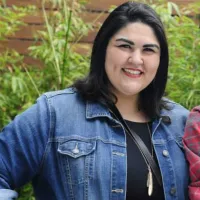
Diversity Spotlight: One-on-One with Kaveh Ashrafi
Dr. Kaveh Ashrafi started his life under circumstances many might think of as extremely challenging. Separated from his family at an early age because of the political circumstances in his native Iran, Ashrafi lived on his own in a previously unknown country for 18 months when he was just 13 years old.
Today, Ashrafi can understand other people’s surprise at his childhood circumstances, but he chalks it up to any number of “unusual” circumstances people face in their lifetime.
One thing is certain — it didn’t hinder a desire to pursue his passion for science.
He is now an Associate Professor in the UCSF Department of Physiology and member of both the UCSF Diabetes Center and the Cardiovascular Research Institute.
After completing a B.S. in Biochemistry at Virginia Polytechnic Institute & State University, Ashrafi went on to earn a Ph.D. in Molecular Cell Biology and Biochemistry at Washington University School of Medicine.
In 2003, he joined the faculty at UCSF to lead a lab investigating fat regulation, feeding behavior, and energy balance in the context of intact organisms.
The following is a lightly edited transcript from an interview with Ashrafi detailing his journey from Iran to the U.S., what drew him to research, and how the thrill of discovery still drives him today.
Synapse: Tell me about your background before science.
Dr. Ashrafi: I was born in Tehran, Iran, and I lived there until I was 13 years old when there was a major change in terms of the government.
It was very dramatic and it had a number of consequences, one of which was me leaving Iran while most of my family actually stayed behind. After some initial back and forth, I ended up in Vienna by myself for eighth grade.
About a year and a half later, I came to the U.S. where I initially lived with my uncle and then later on with my cousin in New Jersey for high school. I’ve been in the U.S. ever since.
Synapse: So, you were living alone in Vienna at 13? What was unique about that experience?
Dr. Ashrafi: Most 13-year-olds don’t live on their own in a different country — that is pretty unusual. However, circumstances are always very important in terms of how things happen in life.
It wasn’t like everything was perfectly normal and then one day I was plucked out of my family and put somewhere else. There was a whole series of events because of the revolution in Iran that, at the time, me leaving seemed like an incredibly logical step forward, one that I would do all over again.
On the other hand, what I’ve come to realize is that everybody has something pretty unusual in their backgrounds in one way or another. So, in that sense, I don’t think it really is that different.
Synapse: Once you were in the U.S. for high school, did you already have inclinations that science might be a direction you would go?
Dr. Ashrafi: There was never a very specific turning point or “aha moment” that drew me to science. From early on, I had an inclination toward science, but I really had no idea what it meant to “do science.”
The real interest developed later in high school and college when I started learning how people think when they are doing science and how their worldviews are developed as a result of that. It was less in terms of what bench science is or what discovery science is, but it was more about the intellectual draw of science as a way to view of the world.
Synapse: When did you first find yourself in the lab?
Dr. Ashrafi: My first real experience of doing something in a lab came when I was really struggling to figure out how I would pay my way through college. An issue for me was, from the time that I came to the U.S., I had been here on an F1 student visa.
Because of that particular status, I couldn’t just take time off from school to work and save money. So, in figuring out a way to legally work and make money, there was a program through my school where you get to work up to one year in your field doing practical stuff.
So, through that, I happened to get a job at Merck Pharmaceuticals in a brand new research lab. Then, when I went back to school, I started working in a lab and I seem to have continued that ever since.
Synapse: Now you’re an investigator leading a lab here at UCSF. Compared to your very first experiences in lab as a student, is there anything that is surprising about being on the other end as a professor?
Dr. Ashrafi: Yes, absolutely! One of the issues is, as you probably know, that so much time has passed since then. So, what I think is surprising at this point may not be so relevant. Having said that, it hasn’t been so long that I have forgotten how exciting and intimidating it is to be in a lab for the first time.
Some of the things that were wonderful and challenging back then remain wonderful and challenging today. The thing that has always remained wonderful is the science itself, the discovery. In fact, one thing I would say is that my interest in and enjoyment of discovery has only grown over the years rather than be diminished.
The fun thing has been doing science to discover something: no matter how difficult it is, if you just keep chipping at a question, you will eventually get somewhere. I suppose what has changed is my level of confidence that we can take what are really complicated problems and successfully chip away at them.
Fortunately enough, I have a good group of people that help me do that. So, I’m not the one actually in the lab doing the experiments! That is a major change.
Synapse: What do you think is the biggest challenge facing young scientists today?
Dr. Ashrafi: At places like UCSF, we are fortunate enough to recruit very talented people with the capability to do science. The people that enter the program are people who have done very well in terms of their academic career so far.
However, for most of them, this is the first time they will end up in a situation where they are no longer the top student in their class, or where the path is unclear, or where they spend a lot of effort on things that don’t work.
That is when it gets really complicated. I think the biggest challenge for people entering science is having the perspective to know when to work hard, when not to give in to failure, and when to abandon the project. That is the most difficult thing.
The reality is that nobody ever has a problem when everything is going perfectly fine. Problems usually arise when things are not going well. Sooner or later, for most people, that is going to be the case in graduate school.
Synapse: Is there any single piece of advice that has informed the way that you broadly approach science?
Dr. Ashrafi: One thing that does stand out is something that my postdoctoral advisor used to say, even though I think he himself got it from somebody else.
He said: “If you want to have a good idea, then have a lot of ideas!”
Synapse: Did you have any role models that helped guide your career development?
Dr. Ashrafi: I have had many role models throughout my life and at different stages of my education. I’ve been fortunate enough to either be trained by or work with a number of people that I very much look up to.
I suppose what I would like to say is that I’ve come to realize that there are very different paths to success: I’ve seen many very successful people, and they all got there in different ways. While there were some commonalities among them, at the end of the day, each one of them had their own path…
The people that I admire the most are people that are driven by science rather than by pretty much anything else. Even though that sounds like the obvious answer for how it should be, I don’t think that is always the case. That is where you really see the passion and the joy and the fun of the whole thing.
Despite all of the difficulties or complexities or competition of it all, they maintained their humanity and their center.



